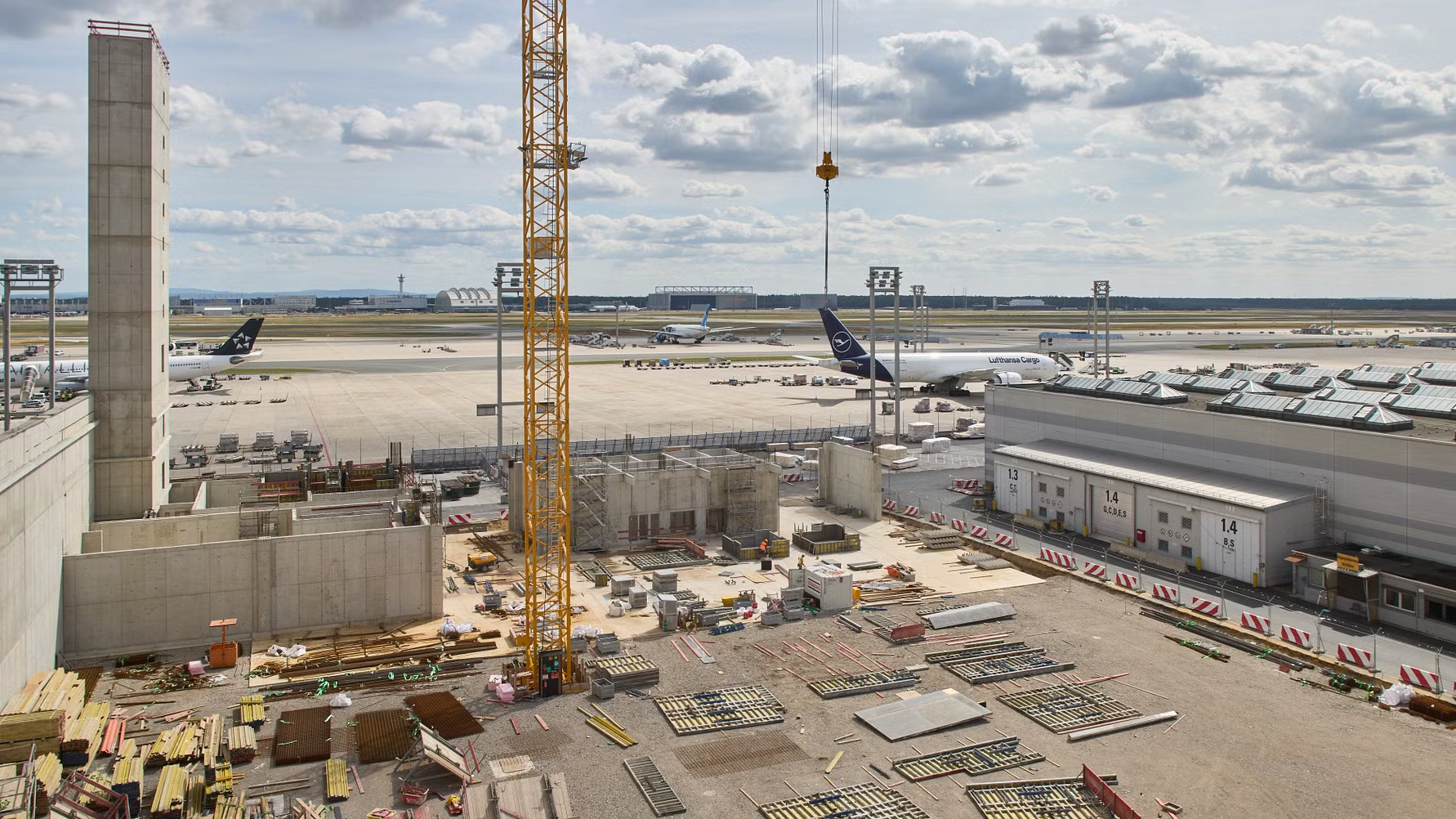
Lufthansa Cargo recently celebrated an important step in further developing its central cargo hub at Frankfurt Airport. With an investment volume of almost 600 million euros, the cargo airline is focusing on a comprehensive modernization by 2030, making the Lufthansa Cargo Center (LCC) Europe’s most modern airfreight hub. Numerous guests from the worlds of politics and business, as well as employees, customers and project partners, attended the ceremony at the “LCCevo” construction site to mark the start of construction, which has already begun. The participants filled and sealed a time capsule to commemorate this important milestone for the company.
“Lufthansa Cargo enables global business and connects world markets more sustainably. The ‘LCCevo’ project represents our drive for growth and excellence,” said Ashwin Bhat, CEO of Lufthansa Cargo. “In times of global tensions and changing customer demands, we need innovative solutions that meet our customers’ and society’s needs. This is only possible with a modern infrastructure. For our customers, we want to optimize efficiency and quality and make our service even faster and more seamless. For our employees, we want to create attractive and future-proof jobs for the next generations in our newly designed ‘Home of Cargo’. At the same time, ‘LCCevo’ underscores our strong ties to our home base and strengthens Frankfurt Airport’s role as a central cargo hub in Europe”.
“This investment by the Lufthansa Group is a clear commitment to the Frankfurt location and symbolizes our confidence in the long-term future of the airfreight business,” said Michael Niggemann, member of the Executive Board of Deutsche Lufthansa AG. “This flagship project makes our cargo business at the Frankfurt hub fit for the future. It increases customer quality and efficiency, creates sustainable jobs for our colleagues, and enables even more environmentally friendly ground processes. At the same time, we are making a significant contribution to the performance of airfreight in the heart of Europe, thus enabling global traffic for our economy”.
“This is an impressive example of how investments in modern and sustainable infrastructure strengthen our state long-term. Lufthansa Cargo is sending an important signal for innovation and competitiveness at Frankfurt Airport,” emphasized R. Alexander Lorz, Hessian Minister of Finance. “Here in Hesse, where the automotive sector, the pharmaceutical industry and medical technology play a central role, the connection provided by Lufthansa Cargo is an indispensable gateway to the global market.”
In a video message, Kaweh Mansoori, Hessian Minister for Economics, Energy, Transport, Housing and Rural Areas, said: “Frankfurt Airport is regularly referred to as the ‘heart muscle of the region’. The last few years have shown just how important cargo traffic is in addition to passenger traffic. An efficient and modern infrastructure is the key to remaining competitive in this dynamic environment. With the modernization of its cargo centre, Lufthansa Cargo, the largest cargo carrier at Frankfurt Airport, is helping to further strengthen airfreight at the location. Future challenges will be mastered by using the latest technologies and intelligent solutions. At the same time, this is a clear signal for our region’s economic strength and sustainable development and strengthens the position of Frankfurt Airport as an important hub.”
“Frankfurt Airport is crucial to our city’s economic strength, connecting countless companies to global markets. By investing in modern infrastructure and creating a wide range of jobs, Lufthansa Cargo is making a significant contribution to the future viability of Frankfurt. Together with the air cargo industry, we are committed to ensuring that Frankfurt remains an attractive location for companies and employees,” said Mike Josef, Lord Mayor of the City of Frankfurt.
Since its opening in 1982, the LCC has been in continuous operation 24 hours a day, seven days a week and has played a central role in global airfreight traffic ever since. The modernization program includes gradually renewing all central functions by 2030, including cargo handling facilities, storage and conveyor technology, building technology, administrative buildings and IT systems. With a total area of around 330,000 m² – the equivalent of around 46 football pitches – it is one of the largest airfreight hubs in Europe.
Lufthansa Cargo is carrying out this ambitious project without interrupting operations. This “open-heart surgery” requires the cooperation of all parties involved to ensure smooth operations. “We are working closely with partner companies such as Züblin and Bleichert Automation, who are contributing their expertise to the successful implementation, which is fully on schedule so far,” says project manager Stefan Dürr.
The construction work is being carried out in sections so daily operations can continue undisturbed. During the current construction phase, Lufthansa Cargo is renovating or building new facilities in an area of around 55,000 m². A notable milestone is the construction of a 42-meter high-bay warehouse, which will be the second-highest building at Frankfurt Airport.
อัพเดตข่าวสารและบทความที่น่าสนใจในอุตสาหกรรมโลจิสติกส์ก่อนใคร ผ่าน Line Official Account @Airfreight Logistics เพียงเพิ่มเราเป็นเพื่อน @Airfreight Logistics หรือคลิกที่นี่










